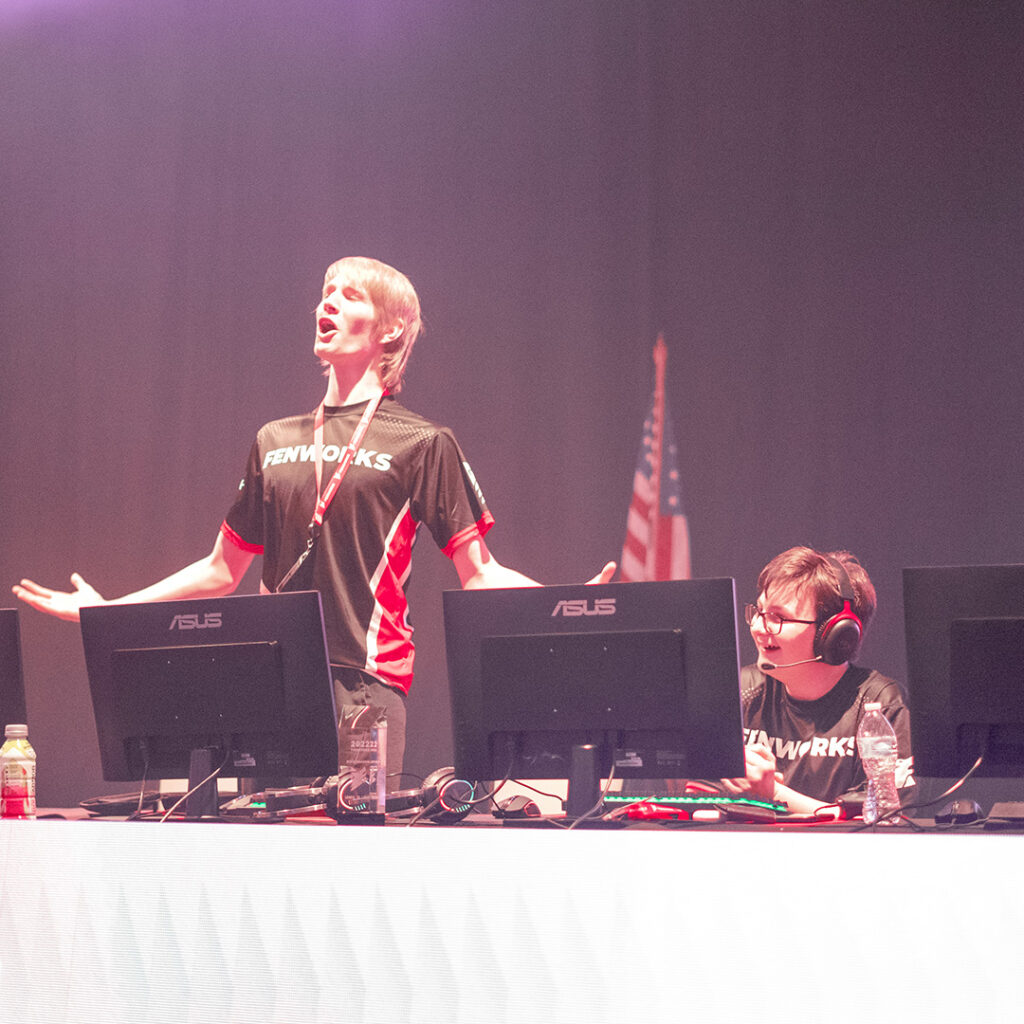Violence and Gaming: Nurturing Positive Development in Our Students

As parents, we all want what’s best for our children, and it’s natural to be concerned about the content they engage with, especially when it comes to video games. With the rise of violent video games in recent years, many parents have raised valid questions about their potential impact on our children’s behavior and well-being. However, it’s essential to understand that the effects of gaming are multifaceted, and there is more to this popular form of entertainment than meets the eye. In this blog post, we aim to shed light on the positive aspects of gaming and dispel any concerns that may arise in the minds of concerned parents.
The Positives of Gaming:
- Cognitive Benefits:
Research has shown that gaming can improve cognitive functions such as problem-solving, critical thinking, and spatial reasoning. Many video games require players to strategize, plan, and adapt quickly to changing situations, which can enhance their mental agility and analytical skills. Link to benefits page
- Social Interaction:
Contrary to the stereotype of gamers being solitary individuals, modern video games often encourage social interaction and teamwork. Multiplayer games provide an excellent platform for our children to bond with their friends and even make new ones online while working collaboratively towards a common goal.
- Stress Relief and Relaxation:
Gaming can serve as a healthy outlet for stress and anxiety. Engaging in a virtual world can provide a break from the pressures of everyday life, allowing our children to unwind and recharge.
- Storytelling and Empathy:
Many video games offer rich narratives and compelling characters, fostering empathy and emotional intelligence in players. Through interactive storytelling, our children can learn to understand and connect with different perspectives.
Debunking the Negative Stereotypes:
- No Direct Causation:
While some studies have explored the relationship between violent video games and aggression, there is no conclusive evidence to suggest that gaming directly causes violent behavior. It is essential to recognize that various factors contribute to a child’s development, and gaming is just one of many aspects of their lives. According to a comprehensive study conducted by researchers at Stanford University, “No causal link has been found between video games and real-world gun violence.” The study, which scoured every reputable source investigating the connection between video games and various social factors, concluded that there is no definitive evidence to suggest that gaming directly causes violent behavior. Rather, the research highlights that gaming may serve as an outlet for aggression and that various factors, including individual characteristics and environmental influences, contribute to a child’s development. (Source: Fortune, May 2, 2023)
- Parental/Guardian Involvement:
As parents and guardians, our role is vital in guiding our children’s media consumption. By being actively involved in their gaming experiences and setting appropriate limits, we can ensure that they engage with age-appropriate content. It is essential for us, as parents, to take an active role in understanding their interests and the games they enjoy. Rather than dismissing their hobbies, let us embrace this opportunity to connect with our children on a deeper level.
Being involved in our child’s gaming experiences allows us to better comprehend the content they engage with and identify potential concerns proactively. By asking questions about the games they play and taking an interest in their virtual adventures, we not only show support for their interests but also open channels for open communication and mutual understanding. It is important to set appropriate limits and boundaries around gaming to ensure that our children engage with age-appropriate content that aligns with their developmental stage. With a balanced approach, gaming can become a rewarding part of their lives, providing opportunities for learning, social interaction, and stress relief.
In today’s rapidly evolving digital landscape, it can be challenging to keep up with our children’s interests and activities. However, taking the time to research and learn about the games they play demonstrates our dedication as parents to be understanding and involved. When we show genuine interest in their hobbies and experiences, we create a supportive and nurturing environment that fosters trust and encourages them to share their thoughts and feelings with us. Together, let us make their gaming experiences safe, enjoyable, and conducive to their overall development.
- ESRB Ratings:
The Entertainment Software Rating Board (ESRB) provides valuable guidance on the age-appropriateness of video games. By adhering to these ratings, parents can make informed decisions about the games their children play.
https://www.esrb.org/ratings-guide/
It’s crucial for concerned parent and guardians to approach the topic of gaming with an open mind and a balanced perspective. Rather than dismissing video games outright, we should recognize their potential for positive impact on our children’s cognitive, social, and emotional development. By fostering responsible gaming habits and encouraging open communication, we can create an environment where our children can enjoy gaming safely and responsibly while reaping its numerous benefits.
Remember, the key is to strike a balance between gaming and other aspects of life, such as academics, physical activities, and social interactions. When approached with mindfulness and parental involvement, gaming can be a powerful tool for growth and enjoyment in our children’s lives. Being a kid in today’s world comes with its own set of challenges, and gaming can be a means of escape and self-expression for our children. By embracing their interests and engaging in their virtual world alongside them, we not only enrich our parent-child bond but also gain valuable insights into their experiences and aspirations. Let us remember that being involved in our child’s life is a powerful tool in helping them navigate the complexities of growing up and becoming responsible digital citizens. Fenworks believes together, we can make their gaming experiences safe, enjoyable, and conducive to their overall development.
https://royalsocietypublishing.org/doi/10.1098/rsos.171474
Related Posts
